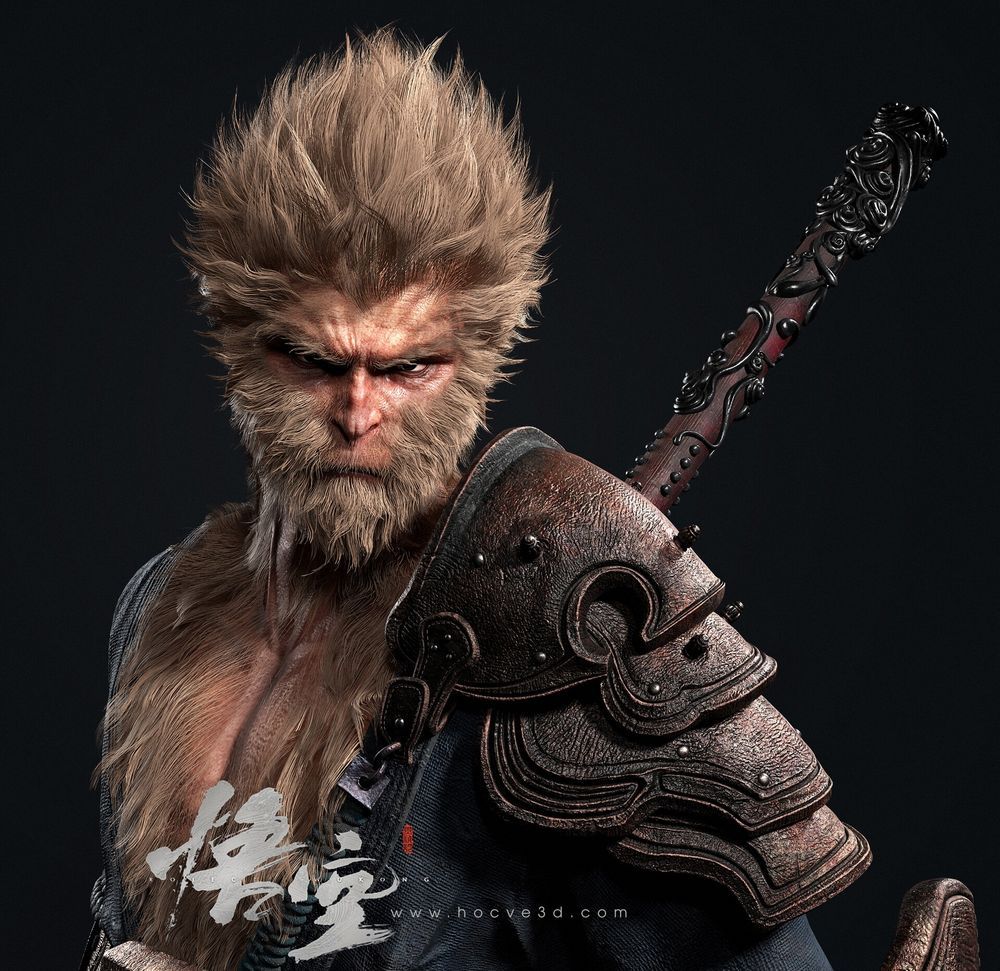
Black Myth: Wukong
All trademarks belong to their respective owners.Popular Now
 Toca Boca World
Toca Boca World
 Among Us
Among Us
 Gacha Club
Gacha Club
 Counter-Strike 2
Counter-Strike 2
 Candy Crush Saga
Candy Crush Saga
 Poppy Playtime
Poppy Playtime
 Free Fire Max
Free Fire Max
 Garena Free Fire: Kalahari
Garena Free Fire: Kalahari
 Fall Guys
Fall Guys
 Geometry Dash
Geometry Dash
Echoes of the Epic: Unraveling the Lore of Black Myth: Wukong and Journey to the West
At its core, Black Myth: Wukong is a breathtaking digital tapestry woven from the threads of one of the most celebrated and influential literary works in Chinese history: Journey to the West. This classical novel, penned by Wu Cheng’en during the Ming Dynasty, tells the epic tale of the Tang Monk Xuanzang and his three powerful disciples – the mischievous Monkey King, Sun Wukong, the pig-like Zhu Bajie, and the sand demon Sha Wujing – on their perilous pilgrimage to retrieve Buddhist scriptures. Game Science isn’t merely adapting this saga; they are crafting an original narrative that deepens and reinterprets its established lore, inviting players to explore a world both familiar and hauntingly new. This meticulous attention to the source material promises a game rich in mythology, legend, and philosophical depth, appealing to both ardent fans of the original tale and newcomers seeking a profound action RPG experience rooted in ancient Chinese culture.
The Foundation: Journey to the West – A Timeless Epic
To understand Black Myth: Wukong, one must first grasp the essence of its inspiration. Journey to the West is not just an adventure story; it’s a spiritual allegory.
- Sun Wukong (The Monkey King): Born from a magical stone, Wukong is incredibly powerful, intelligent, and fiercely rebellious. After causing havoc in the Heavenly Realm, he is imprisoned for 500 years by the Buddha. He later joins Tang Sanzang’s pilgrimage as a disciplined, albeit still fiery, guardian, using his immense strength, cunning, and 72 earthly transformations to overcome 81 trials posed by demons (Yaoguai) and spirits. He eventually achieves Buddhahood.
- The Pilgrimage: The journey symbolizes the human path to enlightenment, with each trial representing an obstacle to overcome. The diverse cast of characters and their struggles reflect different aspects of human nature.
- Three Realms: The novel operates across multiple realms: the Heavenly Realm (of Immortals and gods), the Buddhist Realm (of Buddhas and enlightenment), the Human Realm (where mortals and demons reside), and the Underworld.
Black Myth: Wukong’s Narrative Approach: Post-Pilgrimage Mysteries
Game Science’s approach to the Journey to the West lore is particularly intriguing: it appears to be set after the events of the original novel, with Wukong having already achieved Buddhahood.
- The Destined One and a New Quest: The player character, often referred to as the “Destined One,” seems to be a form of Sun Wukong, though the exact nature of his existence or connection to the original Monkey King is shrouded in mystery. Trailers hint at a journey of self-discovery, perhaps exploring the aftermath of enlightenment or confronting lingering shadows from Wukong’s rebellious past. The game might delve into the complexities of fate and free will.
- Returning to Mount Huaguo: The Flower-Fruit Mountain (Mount Huaguo), Wukong’s birthplace and kingdom, prominently features in trailers, suggesting a return to his origins to confront new threats or seek peace. This return to his roots could be a central theme.
- Reimagined Adversaries: The game showcases a multitude of Yaoguai (demons) and celestial beings that are either direct adaptations or inspired by characters from the novel. These aren’t just generic monsters; they are powerful, intelligent beings with their own motives and backstories, often tied to specific chapters of Journey to the West.
- Kang-Jin Loong: A dragon-like demon, possibly inspired by the son of the Dragon King of Jinghe River.
- Macaque (Red-rumped man-dril): A powerful Yaoguai Chief, likely a reimagining of a character from Chapter 58 of the novel.
- Yellowbrow: A cunning demon who impersonated Maitreya Buddha in the novel, now potentially a major antagonist seeking revenge.
- Six Ding and Six Jia: Guardian gods from heaven, appearing as formidable foes in the game.
- Exploring the Unknown: The novel provides a rich foundation, but Black Myth: Wukong takes liberties to fill in gaps or explore previously untouched aspects of the universe. This allows for creative freedom while maintaining thematic consistency with the source material. The game introduces new regions like “The New West” and gives players a glimpse into the broader Journey to the West universe, including the Heavenly, Buddhist, and Human Realms.
Themes and Philosophy: More Than Just Combat
Beyond the dazzling visuals and thrilling combat, Black Myth: Wukong hints at a deeper narrative and philosophical exploration.
- Redemption and Consequences: Wukong’s journey in the novel is one of redemption. The game seems to explore the lasting consequences of his past actions and his continued struggle for inner peace, even after achieving enlightenment.
- Cycle of Conflict: The trailers suggest a world where the lines between good and evil are blurred, and conflict persists long after the “official” journey concludes. This could lead to a more nuanced exploration of mythology where deities and demons are not simply black and white.
- Buddhist Influence: The original novel is deeply rooted in Buddhist philosophy. Expect to see elements of this in the game’s narrative, themes of karma, enlightenment, suffering, and the nature of reality. The concept of the “six senses” and retrieving “relics” tied to them suggests a profound spiritual journey for the protagonist.
- Cultural Significance: For Chinese players, this game is a celebration of their rich cultural heritage. For a global audience, it’s an accessible and visually spectacular entry point into a vibrant and fascinating mythology.
Black Myth: Wukong is poised to be a landmark title that not only delivers an exceptional action RPG experience but also honors and expands upon one of the world’s greatest epic tales. By delving into the complex character of Sun Wukong and exploring the intricate world of Journey to the West with unprecedented detail and artistic vision, Game Science is crafting a game that promises to be both a thrilling adventure and a thought-provoking journey into the heart of Chinese mythology. The echoes of the epic are loud, and the call to unravel its secrets is irresistible.
What aspect of Journey to the West lore are you most excited to see explored or reinterpreted in Black Myth: Wukong?
Rating
PROS
- Stunning Visuals: The game features high-quality graphics and a unique art style that brings the mythical world to life, showcasing detailed character models and breathtaking environments.
- Innovative Combat System: Players can experience dynamic and fluid combat, utilizing a variety of melee and magical abilities. The Monkey King’s transformation mechanics and diverse weapon options add depth to battles.
- Expansive Open World: The game offers a vast, richly detailed open world with diverse biomes, dynamic weather, and a day-night cycle, encouraging thorough exploration and interaction.
- Engaging Storytelling: Black Myth: Wukong provides a fresh take on the classic Chinese myth of the Monkey King, featuring well-crafted cinematic cutscenes, professional voice acting, and immersive environmental storytelling.
CONS
- Difficulty Curve: Some players find the game’s difficulty curve to be uneven, with certain sections being disproportionately challenging compared to others.
- Limited Variety in Enemy Design: The variety of enemies may feel limited, with some encountering repetitive designs or tactics that could diminish the sense of challenge over time.
- Optimization Concerns: While the game is designed to run on various hardware configurations, there are still optimization concerns that may affect performance on lower-end systems.